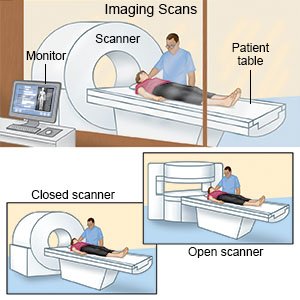CT (Computed Tomography) Scan for Children
Medically reviewed by Drugs.com. Last updated on Aug 4, 2025.
What do I need to know about a computed tomography (CT) scan?
A CT scan uses x-rays to take pictures of your child's blood vessels, tissues, bones, or organs. It is also called a computerized axial tomography (CAT) scan.
How do I prepare my child for a CT scan?
- Your child's healthcare provider will tell you how to prepare your child. You may be told not to let your child eat or drink anything for 2 to 4 hours before the scan.
- Tell the provider about all your child's allergies. Contrast liquid may be used to help a body part show up better. Tell the provider if your child has ever had an allergic reaction to contrast liquid.
- Tell the provider about all your child's current medicines. The provider will tell you if your child needs to stop any medicine for the scan, and when to stop. The provider will tell you which medicines to give or not give your child on the day of the scan.
- Tell the provider if you know or think your adolescent is pregnant. A CT scan may harm an unborn baby.
What will happen during a CT scan?
Your child will lie face up on a table. Medicine may be given to help your child feel calm and relaxed. Contrast liquid may be given. The table will be moved into an open space in the middle of the machine. Your child will need to lie still during the CT scan. The scan may take 5 to 45 minutes, depending on the type of scan your child needs.
 |
Treatment options
The following list of medications are related to or used in the treatment of this condition.
What will happen after the CT scan?
Your child's healthcare provider will tell you how to get the results of your child's scan. You may need to schedule a follow-up appointment to get the results.
What are the risks of a CT scan?
The radiation from a CT scan may increase the risk for cancer.
Care Agreement
You have the right to help plan your child's care. Learn about your child's health condition and how it may be treated. Discuss treatment options with your child's healthcare providers to decide what care you want for your child. The above information is an educational aid only. It is not intended as medical advice for individual conditions or treatments. Talk to your doctor, nurse or pharmacist before following any medical regimen to see if it is safe and effective for you.© Copyright Merative 2025 Information is for End User's use only and may not be sold, redistributed or otherwise used for commercial purposes.
Further information
Always consult your healthcare provider to ensure the information displayed on this page applies to your personal circumstances.
